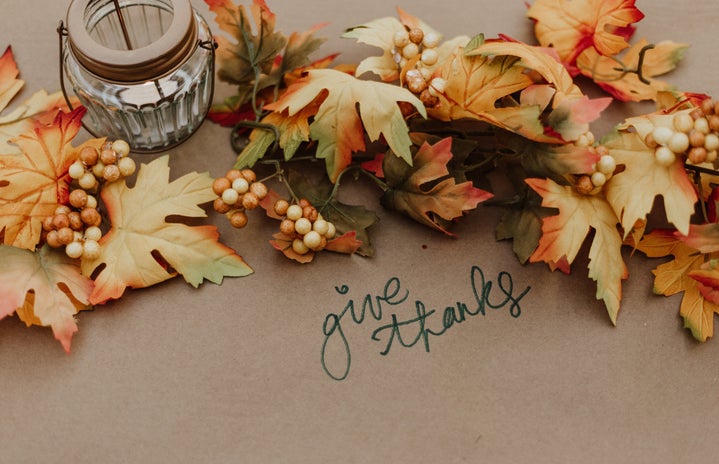Oh, the holidays. Those few months, focused on a handful of days, bring about so many emotions in us all. Many are happy; there is a lot to look forward to during this time. Getting together with friends and family. Buying and receiving gifts. Tinsel, booze (for those of age), ugly sweaters. But there are also aspects of the holidays that can be hard. The absence of a loved one, seasonal depression, and the topic of this article; disordered eating during the holidays.
According to Intermountain Healthcare studies suggest that up to 50 percent of Americans have a “disordered” relationship with exercise, their body and food. Here is an example of a common unhealthy eating pattern: You have strict rules about food and have decided what, when, and how much you are “supposed” to eat. You get hungry, because likely you are not meeting your body’s caloric needs, and food takes over your thoughts. You try to practice “self-control” and that works for a minute. Then you give in and eat way too much, maybe even to the point where you are bingeing. Afterwards you feel awful and swear to do better. So you go back to the restrictions you placed on yourself. Then the cycle continues. This is a tiring, defeating, and never ending battle between you and….you. When this is a part of your everyday life, holidays are challenging. You are around an abundance of food and eating is a social event. On a normal day you can steer clear of the “bad” foods you fear so much but you can’t do that at holiday events. This is where holiday food stress comes into play.
I know this all too well. I don’t know when exactly I started having a bad relationship with food but it was a part of my life for many years, and now is something I have to be very mindful about. My most vivid early memory of holiday food stress was when I was in 7th grade. It was Thanksgiving morning and while my sisters watched the Macy’s Thanksgiving Day Parade on T.V., I was upstairs on my iPod Touch googling ideas on how to resist eating. It wasn’t that I didn’t want to eat at all, I was just worried I would eat too much. Which at this time was anything over 500 calories. Article after article I took notes on all the tips and tricks. Drink coffee before you eat. Drink water or diet soda while you eat. Fill up on vegetables so you don’t have room for “bad” food. Then I went into the basement and worked out as intensely as possible to burn off calories and “earn” my food. When the meal rolled around, I watched everyone else enjoy their food. Meanwhile, I was having an internal battle repeating over and over to myself “nothing tastes as good as skinny feels” and pleading with myself to not eat. Just don’t eat. Then of course I do and I eat past the point of comfort because I have been depriving myself. I hate myself for it. Then a new battle begins about what to do about it. I know I have limited time to make this decision. Every second I wait is that many more calories absorbed into my body. So I sneak upstairs, turn on the sink, and throw up my food. Nobody hears because they are all downstairs talking and I slip back to the table, undetected. 10 minutes later my stomach rumbles from being empty. So we start again. Happy holidays.
Nobody deserves to live like that. I wish I could go back and give my 13 year old self a hug and say “Hey you are worth so much more than this…..also….you are ruining our teeth so can you please chill out.” It has taken me years to unlearn what I grew up believing about food and I would be lying if I said I was 100% free of it. Of course I want to be thin and there is always that voice in my head saying eat this, don’t eat that. This is good food, this is bad food. Now I am strong enough to mentally respond to that voice. When I go to eat something and the voice in my head pops up telling me not to, I think “Nothing bad will happen if I eat this”. Then I eat it and I say to myself “See, nothing bad happened.” If you feel like you have a voice in your head bossing you around this holiday season, talk back to it. If it says “you will get fat if you eat that pie”, respond “I will be exactly the same after I eat this pie.” It will feel corny at first but to change your thoughts you need to challenge them. If you want guidance with this, Life Without Ed by Jenni Schaefer is an excellent read. It focuses on separating yourself from the voice in your head that bullies you about food. It is geared towards people with eating disorders but I think anyone who struggles with food in any capacity can benefit from this read. A common reason people don’t seek help or put forth an effort to recover from disordered eating is because they don’t think they are “bad” enough. You do not need to be completely consumed by your disordered eating habits for it to be worthwhile to work through them. You deserve better than that. You just have to start believing that.
My biggest fear when it came to recovery was that I would be out of control. That I would eat junk food for breakfast, lunch, and dinner. That I would constantly be eating and gain an enormous amount of weight and have to roll around like a bowling ball. The irony is, I have so much more control now than I ever did when I had an eating disorder. Being able to eat a cookie and not think anything of it, that is control. Focusing on the conversation at the dinner table and not an inner battle about calories, that is control. This Thanksgiving I will fill my plate up with what looks good and when I am full I will stop eating. It’s as simple as that. No calorie counting or trips to the bathroom for me. This is because I try to listen to my body. After years of disordered eating, learning to listen to your body is a challenge to say the least. I had made a religion of ignoring my hunger cues and shaming myself for feeling hunger to begin with. I am not an expert on this and everyone is different. Finding online resources is helpful. The majority of it is just practice. Trial and error.
It can be hard to tune out others who talk about food and weight around you. During the holidays many people talk about their holiday weight gain, New Year’s resolutions to lose weight, or how much “bad” food they have had. When you are trying to stop thinking about these things, it can be frustrating to hear it from others. You could ask people to not talk about food in front of you but if you are struggling privately or are around people who won’t respect that, you need to develop coping skills. Personally I do my best to steer the conversation somewhere else and I never respond directly to any negative comments made about food. I also remind myself that issues with food are widespread. It harms many people and it is impossible to never be around others who speak negatively about food. All I can do is focus on me. I know how I want my life to be, I know that having a bad relationship with food has never served me. Other people may not have figured that out yet and maybe they never will. I am only responsible for myself. So when you start to hear harmful talk, remind yourself that what people are saying is not factual and it is exactly what you are trying to get away from.
To prepare for the holidays I would suggest getting online and looking into food freedom. Food freedom is ”being in control of your food choices, rather than letting them control you . It’s creating a safe space for all foods in your diet without guilt, rules, or any other negative associations. It’s being able to eat a green salad and a cupcake with the same level of confidence and control with each food.” “Health” nuts will swear things like sugar, gluten, and fat are the devil and have no place in your diet. Reality is, everything has a place in your diet. I used to worry that once I started eating what I wanted I would eat a bunch of junk. Turns out, that’s not really what I want most of the time. When I allow myself to enjoy foods that I used to consider “bad” I found that I don’t actually crave the food as intensely as I did back in my eating disorder days. Most of the time I want to eat something healthy because that is what makes my body feel good. Food freedom doesn’t say that eating for health isn’t important, it just says it’s not the ONLY thing that’s important. I follow a lot of instagram pages that promote food freedom and I find that helps keep it fresh in my mind. Beware however, many of these “healthy” instagram accounts are just women showing you how to restrict. If you see them suggest swapping out bread for a cucumber, unfollow them immediately.
One last thing that helped me was to get really pissed off. I think about all of the times I could have been enjoying a party or social event but instead was figuring out a way to throw up discreetly. I think about tracking calories while I was in sports, eating 1,200 calories a day (the caloric needs of a toddler) and how I may have been better if I had been properly nourished. I think about when I was making minimum wage and spending $40 on a “detox” tea that was quite literally just laxatives. I think about the toll that having an eating disorder took on my body. And lastly, I think about all the bastards who are making millions off of people like me. They count on us hating ourselves, wanting to be smaller, wanting to take up less space. They tell us that we will be happy if we lose weight. They tell us we will be easier to love. That women are supposed to look a certain way and if you don’t, you need to be constantly striving to meet those standards. Then they put a price tag on it and get rich, knowing that it’s all lies. I get really mad when I think about that to the point that healing my relationship with food is a form of rebellion.
So this holiday season, eat. Enjoy holiday foods and the company of your loved ones. Listen to your body and block out the people who have their own issues with food to deal with.

